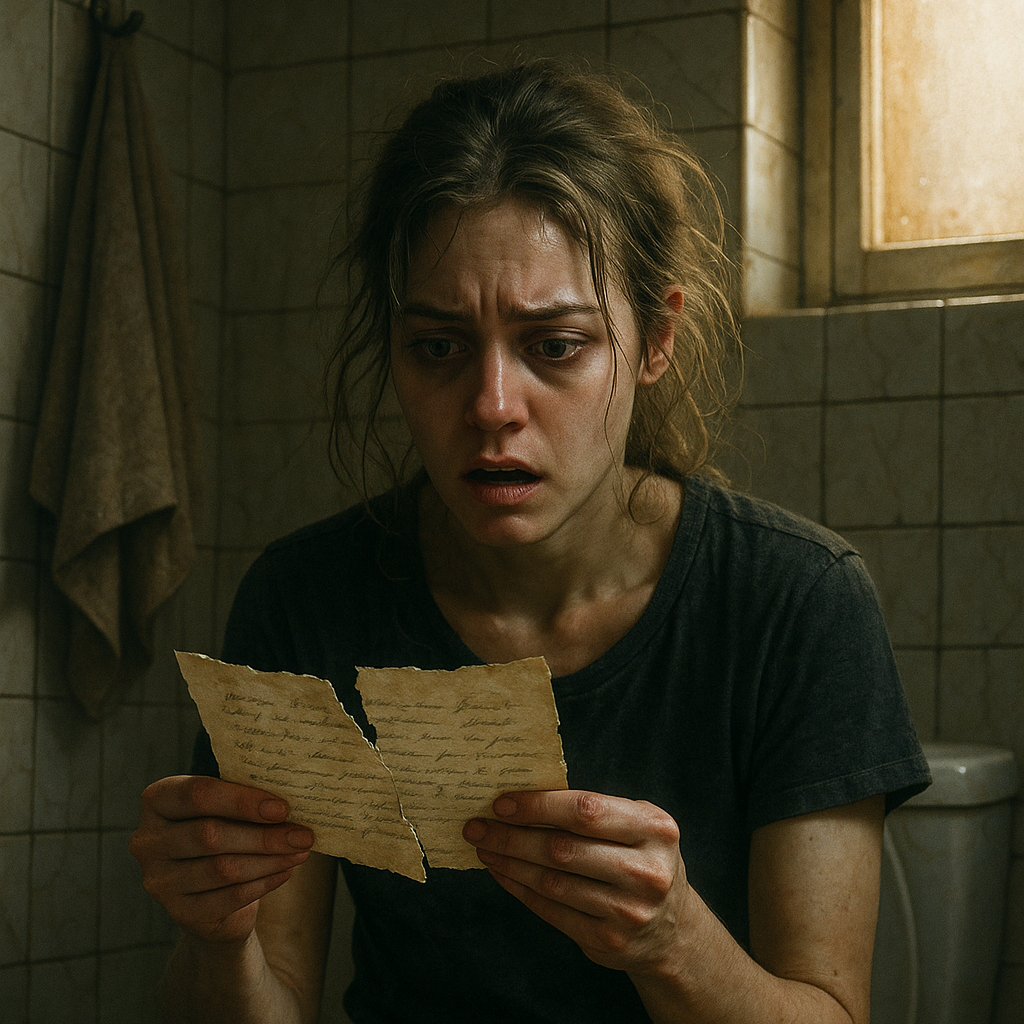Lauren Abrams, 27, moved into her late uncle’s rent-controlled apartment in Jackson Heights, Queens, three weeks after his funeral. Everyone said he died of a heart attack in his sleep. No autopsy was done — he was 72, had smoked all his life, and lived alone. No reason to question it.

Lauren never really knew him. He’d been estranged from the family for years. A former postal worker with a quiet demeanor and few friends. His apartment reflected that: dusty books, stacks of old mail, faded postcards from decades ago. But the rent was free — and Lauren, between jobs and broke, had no choice.
Until the night she found the letter.
It was taped behind the mirror with fragile masking tape, the kind that crumbled at the touch. The envelope was addressed simply:
“To whoever finds this: I didn’t die of natural causes.”
Inside was a single handwritten page.
In it, her uncle — Richard Abrams — claimed he had been working as a courier for something he called a “silent network.” The letter said he had been paid to deliver sealed packages “across boroughs” without asking questions. But two years before his death, he’d discovered what was really inside them: falsified prescriptions, cash bundles, and stolen medical records.
He claimed he’d tried to back out. But they warned him.
They watched him.
And then, one night, they told him if he ever spoke about it, he’d die.
He wrote:
“If I’m dead, and you’re reading this — they got to me.”
Lauren didn’t know what to believe. But the fear in the handwriting was real. The details were too specific.
She went to the NYPD. At first, they were skeptical — but when they sent a team to inspect the apartment, everything changed.
Behind the false wall in the hallway closet, they found a hidden compartment.
Inside:
– 13 sealed manila envelopes containing thousands in cash
– multiple unregistered cell phones
– and an old cassette tape marked “Dec. 14 – drop route evidence”

Forensic teams pulled fingerprints. DNA traces.
They linked the envelopes to an ongoing federal investigation into a major health insurance fraud ring operating in the northeast since 2011.
Lauren’s uncle, it turned out, had been an unwitting mule in one of the largest Medicare scams in New York history — a scandal that had already cost the system over $200 million.
The letter cracked the case wide open.
Several arrests were made. Investigators said the materials in the wall provided more leads than two years of surveillance had.
Lauren was questioned by the FBI, and later praised for coming forward. She now works with a legal nonprofit helping whistleblowers in elder care fraud cases.
But she still refuses to use the bathroom mirror.
The apartment has since been renovated. The medicine cabinet replaced.
But in her drawer, Lauren still keeps the original letter — and the envelope, fragile and torn — as a reminder that sometimes, justice doesn’t knock on your door…
…it hides behind your mirror.

A true story. A police investigation. A hidden letter that brought down a criminal network.
And one niece who refused to ignore what others would’ve dismissed.

